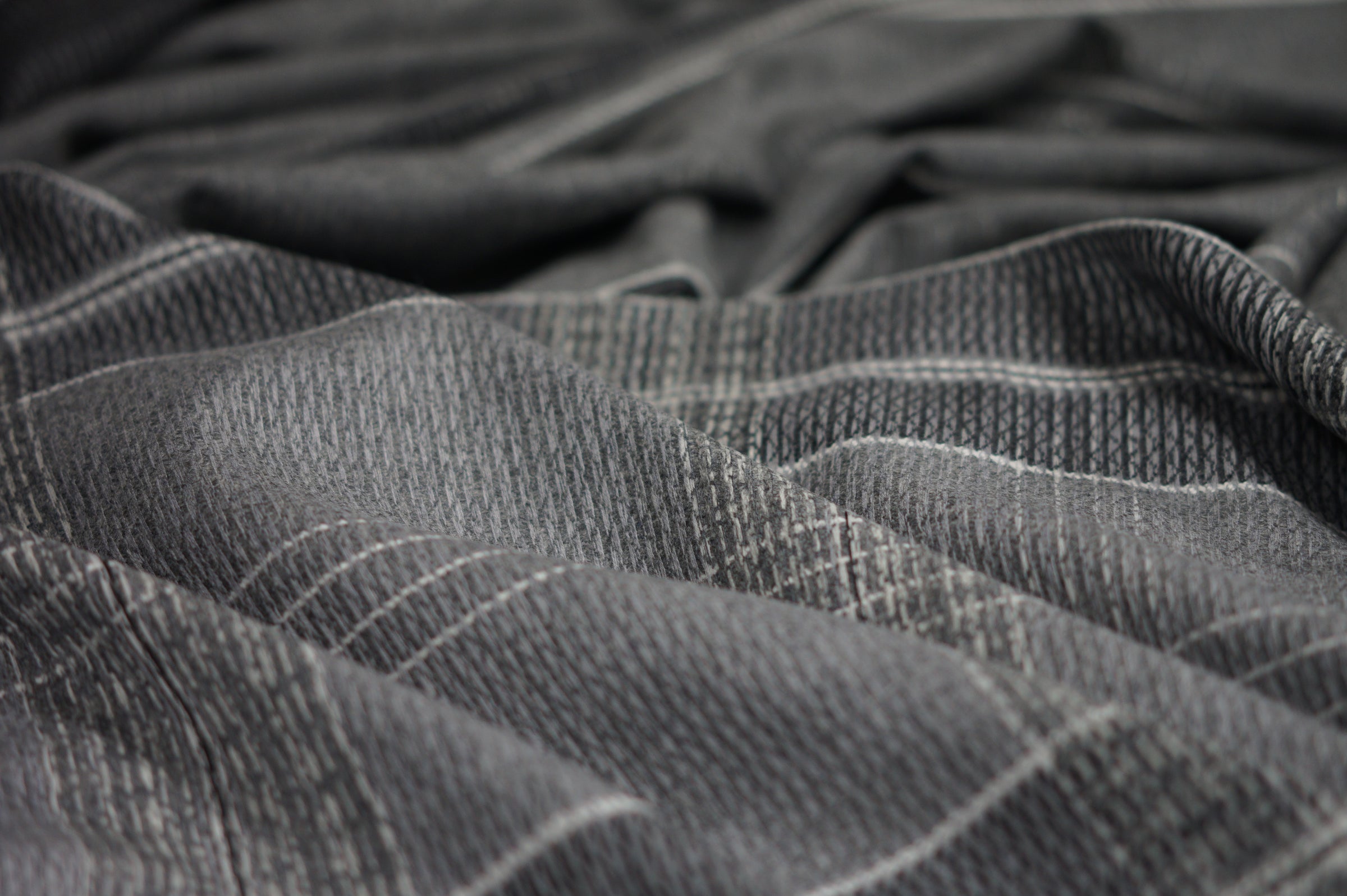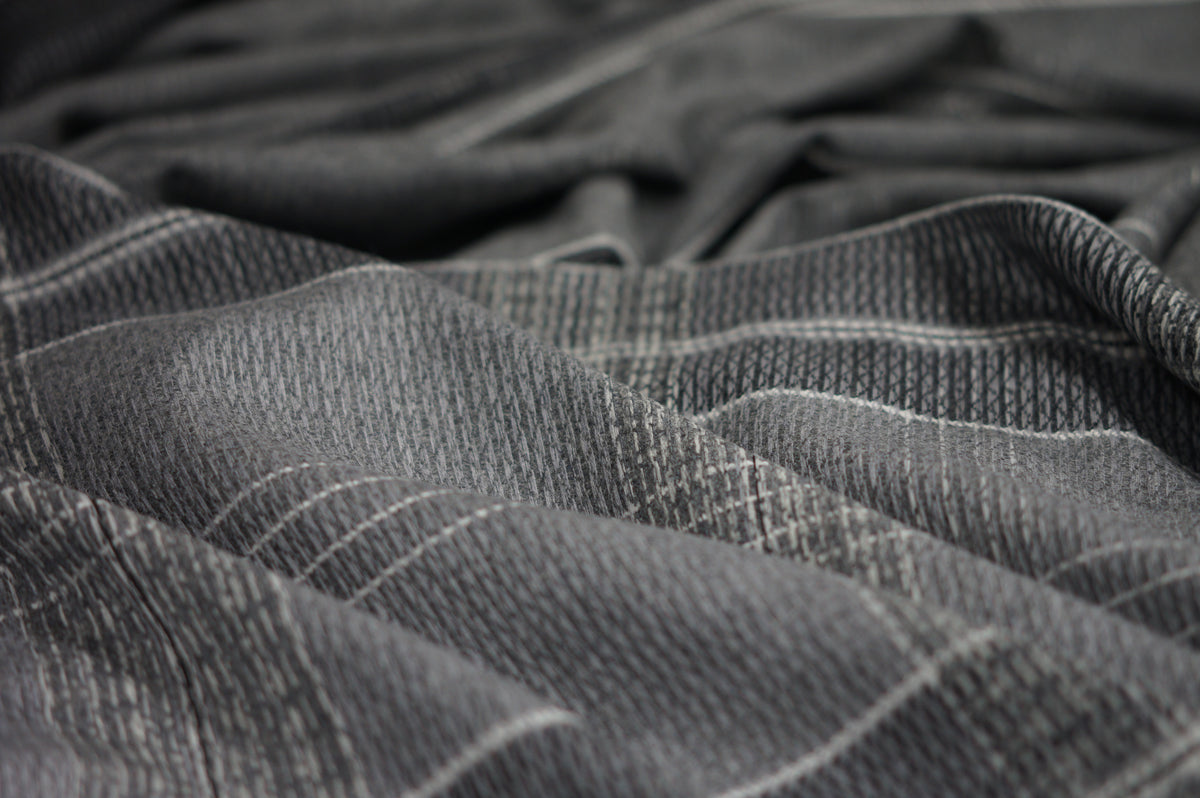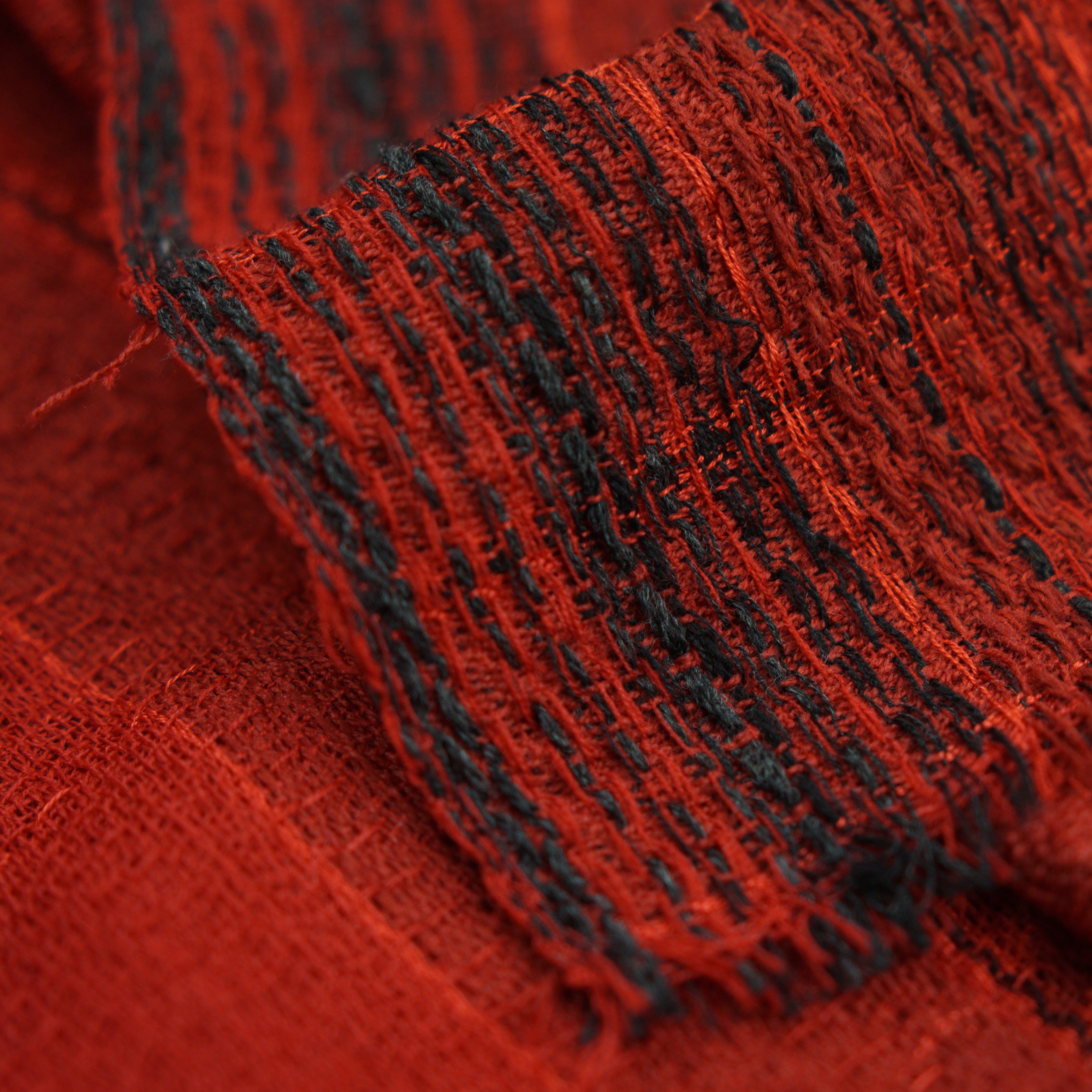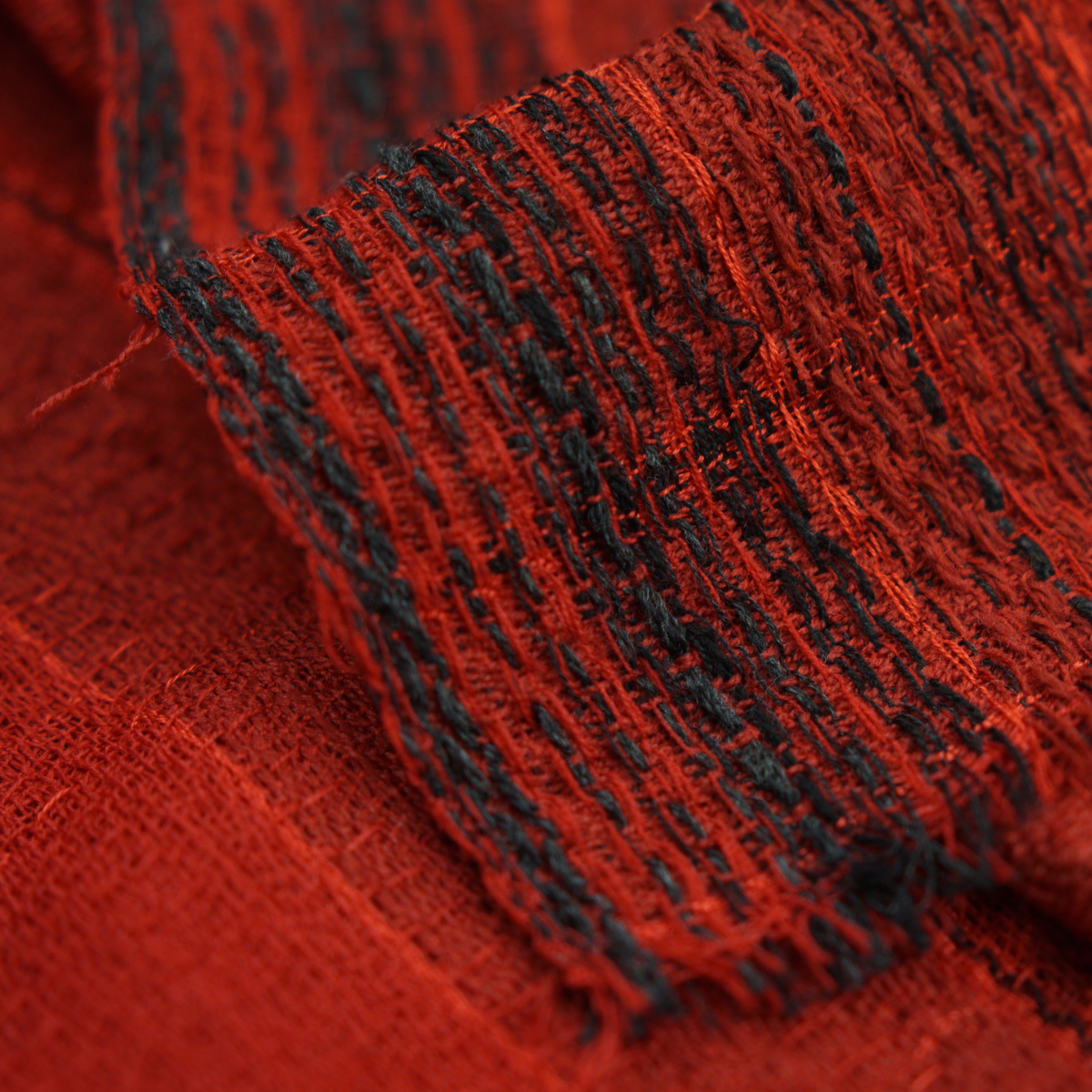We are,
Prickly Thistle
Prickly Thistle
As of 14th October 2022 we rebelled, and for now have an anti-social media platform policy. Let's connect in a real way, set yourself free from the scroll....










What is polyester?
Polyester, technically known as polyethylene terephthalate (PET), is a synthetic woven material derived from petroleum (oil), it is a plastic.
How much polyester is produced annually?
Known for being incredibly durable, versatile, and relatively inexpensive to produce, polyester is the most widely used fibre — accounting for roughly 80% of all synthetic fibres produced. In 2018, polyester made up 52% of global fibre production, equating to 55 million metric tons produced annually. In 2020, global polyester fibre production increased to 57.1 metric tons. That is the equivalent of 57 million female cows. In Scotland we only have 1.7 million cows (2021). Currently up to 70 million barrels of oil are used to make polyester.
Where did polyester come from?
Polyester was first invented in 1941 by British chemists John Rex Whinfield and James Tennant Dickson; however, polyester didn't become popular until the 1970s as an inexpensive material for clothing. It's surmised that polyester's relative cheapness is what fueled the growth of fast fashion enabling fast-fashion retailers an inexpensive way to mass-produce throwaway fashion. Over time, as the fashion industry has grown, production costs have shrunk, making polyester incredibly easy to get and competitively priced.
How is polyester fabric made?
The production of polyester begins with the extraction of petroleum from the earth using massive drilling machines. From there, ethylene glycol is mixed with dimethyl terephthalate, and the two react under incredibly high temperatures to create a polymer. The resulting chemical is then combined with terephthalic acid creating a liquid polyester that is extruded through tiny holes to create long, fine ribbons, which are cooled, dried, and cut up into tiny chips, like plastic sprinkles. These plastic sprinkles are then melted to 270° C until they liquefy, and the liquid is extruded through tiny holes called spinnerets to form long threads, which are then cooled to harden into a fibre and sometimes chemically treated. Finally, these fibres are twisted together to create polyester yarn and wound onto bobbins, where they are ready to be woven into fabric.
What are some of the the environmental and human health impacts of polyester?
CO2 and oil spills
The production of polyester and other synthetic fibres relies on the extraction of fossil fuels, like crude oil, gas, and in some cases, coal. According to the Ellen MacArthur Foundation, CO2 emissions for synthetic clothing are six times higher than cotton. However, beyond carbon emissions, oil extraction is inextricably linked with other environmental horrors, including oil spills, methane emissions, water, and air pollution, wildlife disruption, biodiversity loss, and impacts on human health – particularly for communities near extraction sites.
Polyester isn’t biodegradable
Unlike natural fibres that will completely biodegrade between a few months to a few years, because polyester is derived from plastic it can take hundreds of years to fully biodegrade, all the while releasing methane into the atmosphere and leaching toxic chemicals into soil and groundwater.
Microplastics
While polyester isn't biodegradable, it does, however, shed "microplastics" — tiny plastic particles thinner than human hair and smaller than five millimeters long — into the air and our rivers and oceans every time we wash it, wear it, or throw it out.
With every wash, millions of microplastics are released into the wastewater system. From there, these tiny bits of plastic find their way into rivers and oceans, where they are eaten indirectly and directly by fish (and other marine animals), which then become a part of our food chain.
If you might think avoiding seafood will protect you from this plastic contamination, not so fast. Microplastics have been found in beer, shellfish, and salt. If that's not terrifying enough, it was found that the average person consumes as many as 1,769 particles of plastic every week just by drinking water – bottled or tap.
While the full extent and impact of these microplastics aren't clear, it is clear that the problem is massive and could have detrimental effects on plant, animal, and human health.
Polyester currently can’t be recycled, at scale
While promising technology and innovations are happening in the textile recycling world, closing the loop through the recycling of textile fibers is still in its infancy. We currently don't have the infrastructure to create a global system to collect and sort used polyester for recycling. Currently, less than 1% of clothes are recycled to make new clothes, and virtually all recycled polyester in clothing comes from recycled water bottles, not recycled garments. Therefore the majority of all polyester (and polyester-blends) will be incinerated, releasing carbon and toxic chemicals as it’s burnt. Or, it will rot down over hundreds of years in the landfill, releasing methane into the atmosphere and leaching toxic chemicals into soil and groundwater.
Citation Credit https://www.thesustainablefashionforum.com/
Where did it all begin, the why then, the why now and the future of why not?